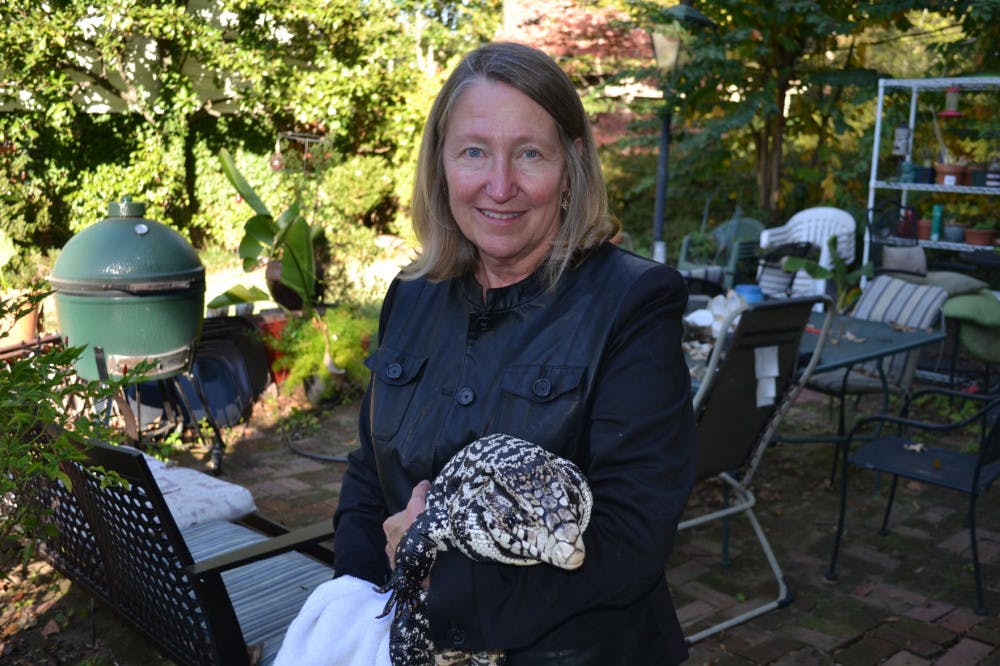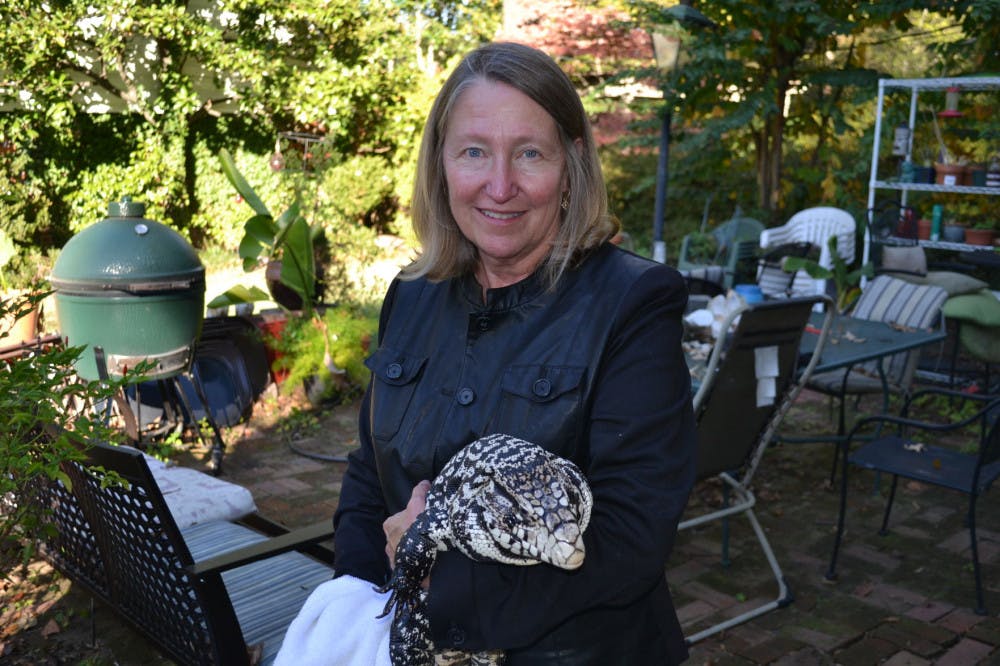
Two 24-day-old piglets lay tranquil on cushioned tables in the University of Memphis animal research facility.Â
As the anesthesia puts the animals in a slumber, veterinarian Karyl Buddington keeps a sharp eye on them. Their oxygen level is at 2 percent saturation, and the ISO chlorine must be continuously adjusted to make sure the pigs sleep properly and peacefully.Â
With both animals now numb to pain, the doctors prepare to make an incision.Â
The pigs’ skin is gingerly slit one inch to the left of the trachea, and tubes are placed in the veins of their necks. Later, the pigs’ will provide blood samples at sequential times.Â
But these two piglets, which will later be adopted out, aren’t just donating blood. They’re saving lives.
U of M’s animal research facilities have been striving for years to improve cancer treatments for struggling patients. They’ve collaborated with Le Bonheur Children’s Hospital and St. Jude Children’s Research Hospital in the past. The U of M researchers are currently working with the latter in hopes of reducing the side effects of a type of a chemotherapy drug.
“I just appreciate being around animals. People are unpredictable. Animals, you can train them, you can get them to take food, you can get them to interact with you. They’re just a pleasure to be around.â€
-Karyl Buddington
Â
“The kids sometimes have very bad reactions to one of the drugs we’ve looked at,†Buddington said. “And we’re trying to figure out why.â€
A veterinarian since 1981, Buddington has worked for the university for 11 years as the director of animal care facilities. On the Tuesday morning of the procedure, she explained how the blood samples of these pigs can help.Â
“We’re trying to look at the effect of diet, and the animals’ response to a chemotherapy drug,†she said. “So say, for instance, if we know that a certain drug is going to target the kidneys, then we want to see if we can feed them a diet that will make their kidneys function better.â€Â
These particular piglets are control animals and will not be given the chemotherapy treatment. They’re currently being fed a high quality puppy food, but the diet will later become more vegetable-oriented.Â
Buddington can see how their systems react to the foods and relay the information to the doctors of St. Jude. They, in turn, can then adjust the diets of patients based on what drugs they’re taking.Â
It’s an important part of cancer treatment because, according to Buddington, it’s one that’s often overlooked.Â
“This is really something that needs to happen,†she said. “Quite often when these kids go into the hospital, they’ll let them eat whatever they want to eat, whether it’s junk food or ice cream or just whatever.â€
But Buddington isn’t just around to inform oncologists and study the effects drugs and diets have on pigs. It’s her job to make sure the animals are treated humanely, a task that’s of utmost importance to her.Â
“The animals deserve the most respect we can give them,†she said. “And they deserve the best quality of life they can have while they’re here. So, if we have pigs, we try to group house them if we can, because they like to interact with each other. We give them toys and things to play with.â€
In her 35th year as a veterinarian, Buddington has come to adore animals, and there’s evidence to prove it. Three steps into her house, and you’ll find she’s only a few pets short of a zoo.
In her Memphis home are three dogs, four cats, two cockatiels, a parakeet, an aquatic turtle, four chickens and a tegu, which is a Brazilian lizard that can reach lengths of four feet.
“I just appreciate being around animals,†she said. “People are unpredictable. Animals, you can train them, you can get them to take food, you can get them to interact with you. They’re just a pleasure to be around.â€Â
Her love of all things great and small is why the U of M animals are cared for so well, and one of the reasons operations are done properly and in a careful way.Â
All gloves, tools and materials must be sterile, and any equipment used must be up to date.Â
“People don’t often realize how expensive everything is,†she said. “We have to mimic everything you would expect if you went into a human hospital.â€Â
Statements like this could change the country’s divided view of animal research, as millions oppose it. According to a Pew Research poll, 47 percent of Americans support animal research, while 50 percent are against it.
This is largely due to the fact that, depending on the study, animals can be harmed or even killed.Â
“Many people don’t agree with animal research, and I understand that,†Buddington said. “But at the same time, I understand that there are medical conditions that we need to know more about, and if you have children, you don’t want people experimenting on them or on you without knowing exactly what’s going to happen. So these animals give us very useful information.â€






